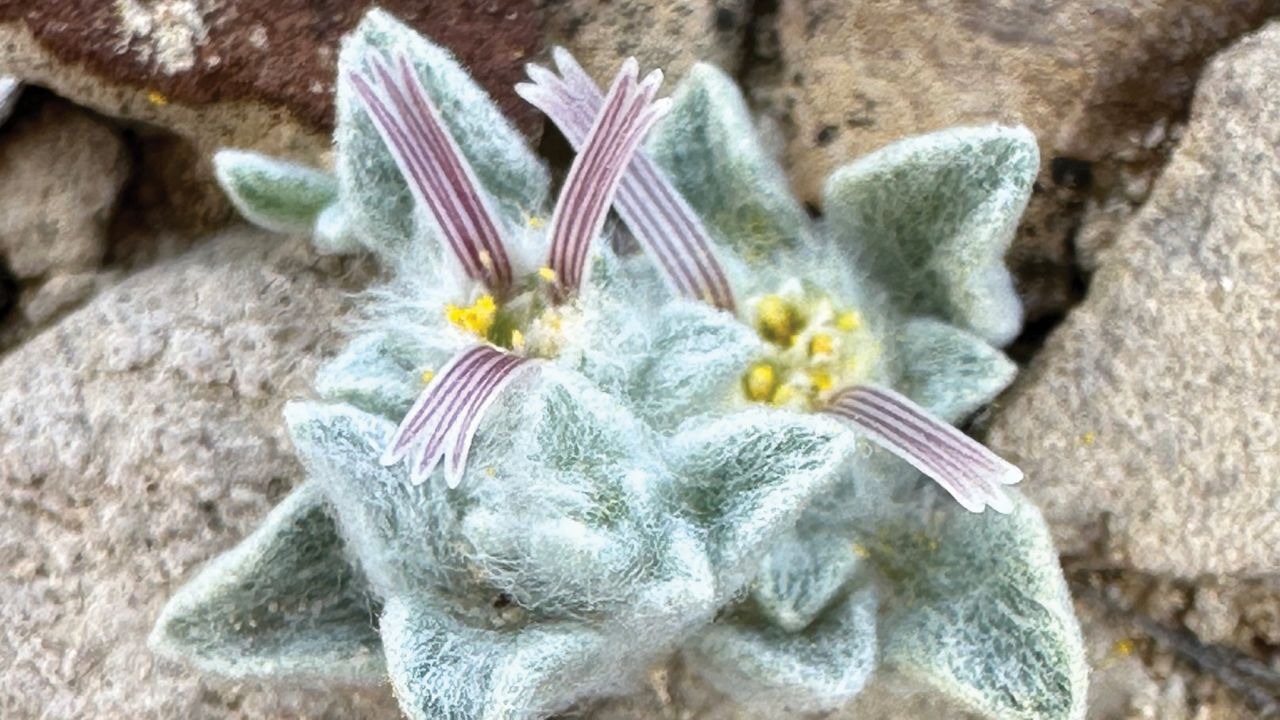BIG BEND NATIONAL PARK, Texas — Big Bend National Park is home to a previously undiscovered plant species, a tiny and fuzzy type of sunflower nicknamed the “wooly devil.”
A volunteer with the park’s botany program and a supervisory interpretive park ranger first spotted the plant in March 2024 and realized it wasn’t something they’d ever seen before. After consulting databases, herbarium records, area experts and posting photos online, it became apparent that the plant was not previously known.
Named for its hairy texture and devil-like “horns,” the wooly devil is a small plant, reaching just a few inches across.
The findings were published in the peer-reviewed botanical journal PhytoKeys earlier this month.
“Now that the species has been identified and named, there is a tremendous amount we have yet to learn about it,” said Big Bend National Park Superintendent Anjna O’Connor. “I’m excited to discover whether there are other populations in the park, details of its life cycle, what are the pollinators, and due to the current drought, if it will be observed at all this spring.”
The plant’s scientific name is Ovicula biradiata. Ovicula, meaning “tiny sheep,” is a reference to the thick, wool-like texture that covers the plant’s leaves. Biradiata pertains to the pointed ray petals in each flower.
According to a news release from the National Park Service, the wooly devil isn’t just a new species but an entirely new genus within the Daisy (Asteraceae) family, making its discovery all the more historic.
Big Bend spans over 800 acres and consists of a wide range of habitats and exceptional biodiversity. Only three small populations of the wooly devil have been found in the eastern region of the park, specifically in limestone pediments.
The area of the Chihuahuan Desert where the plant was found has been under severe drought conditions, the study notes. The environment’s aridity is predicted to increase due to climate change, which could affect the plant’s future.






